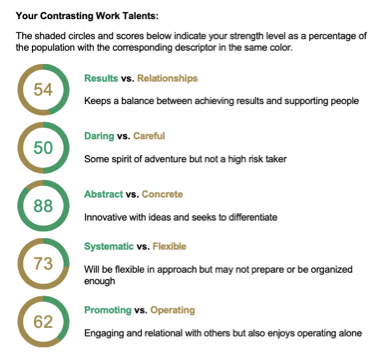Have you ever watched a colleague at work who gets along well with everyone? Not only with colleagues but also with clients. Clients ask specifically for them; colleagues tell them all their secrets. So, what makes them different?
It’s not just about trust, I think it’s something deeper.
In the work I do it doesn’t take much for me to understand the dynamic in this scenario. To others it seems a mystery.
Too often we assume everyone will like us, listen to us, get along with us, trust us and in the case of sales, buy from us or persuade us to buy from them. Not so.
Regardless of who you are, what work you do, how gifted you are—you cannot influence behavior if you do not understand behavior.
People Are Different
How we react to one another is based on behavioral differences.
I react well to quiet thoughtful people. I’m a bit too serious and definitely too reserved.
I tend not to act well to ebullient, overconfident, outspoken people; they make me climb further into my shell. Though secretly I admire their confidence. Go figure.
What causes these great differences in behaviors? Why can’t we all be the same? Apart from the fact it would be pretty boring, one of life’s great mysteries is the uniqueness of individuals.
Let’s try to break this down. Since time began great minds have tried to understand human drivers—why we do the things and behave in the way we do.
When Advisors Don’t Understand Behaviors
One of two defining experiences for me that began my journey into the world of understanding behaviors, was discussing an investment with my financial advisor. I was young and new to the investment world.
Firstly, I was excited to invest in a new venture that I’d read about. The amount involved was not huge, I just wanted to be a part of the “excitement.” Without any real discussion my advisor simply said, “Too risky let’s move on.” (Just as an aside, that young man I wanted to invest in, is now one of the world’s richest and most successful businessmen.)
Secondly, my advisor wasn’t committed to exploring my life grand plans and dreams and then working with me to build financial plans to deliver those expected life experiences.
We were never able to build a relationship. Needless to say, he didn’t last long as my advisor.
Many great minds have tried to understand behaviors. Why we make the decisions we make. Why we don’t learn from the bad decisions we make. Why we have a particular tendency towards a bias and so much more.
Relax reader, I’m not taking a shot at the financial industry; I’m making a point. If we do not understand our own behavior and why we do and say the things we do and say, any relationship will be the poorer.
A more recent experience was just a couple of days ago. Along with my husband, another reflective person, we were in our travel agent to book international flights. The agent was busy drinking a caffeine infused boost drink, and was excited about where we were going—not too sure whether this was caffeine related or genuine! But not once did the agent manage their outgoing sales speak type behavior or wonder why we were so quiet.
With no understanding of their own or our behavior, they didn’t get our business.
These are two distinct personal experiences to demonstrate why many organizations are currently exploring setting up a behavioral science department. Leadership is beginning to realize that understanding behaviors is a real key to success.
We must understand that having the ability to build relationships is available to anyone.
Where To Begin:
• Become self-aware by using a validated scientifically based behavioral discovery process
• Encourage others you wish to build a relationship with to do the same
• Compare outcomes
• Discuss differences
• Agree how best to manage the differences
• Commit to using this invaluable behavioral insight in all areas of personal and working life
In the spirit of transparency—this is me.

I don’t want shallow or superficial relationships. I don’t want to be overly sensitive if someone challenges my thinking. I want to be able to self-monitor my behavior. This insight can only come from taking a deep dive into understanding what makes me tick.
Our inherent behavior is formed at a very young age. It is stable over time; why wouldn’t you want to get to understand it? Why wouldn’t you want to be able to influence others behavior?
There is, of course, no guarantee that your advisor will adjust their performance to embrace a more behaviorally based advisory relationship with you, but at this juncture the next question that you should be asking is this: Do I really want to continue to give my business to this advisor who clearly cares more about product sales than the plans I have that I trust will prosper me and give me and my family not only a good life but help us to deliver the hopes and dreams we have?
Do I want to book my expensive flights with this agent too pumped to even notice we were “switching off”?
No, I want to KNOW ME so I can more effectively KNOW YOU.
Carol Pocklington is chief insights accelerator at DNA Behavior, with offices in Atlanta, Ga. DNA Behavior International is a human performance acceleration business which uses a proprietary “behavior tech” platform to help advisors know, engage and grow all their employees and clients to deliver customized experiences.